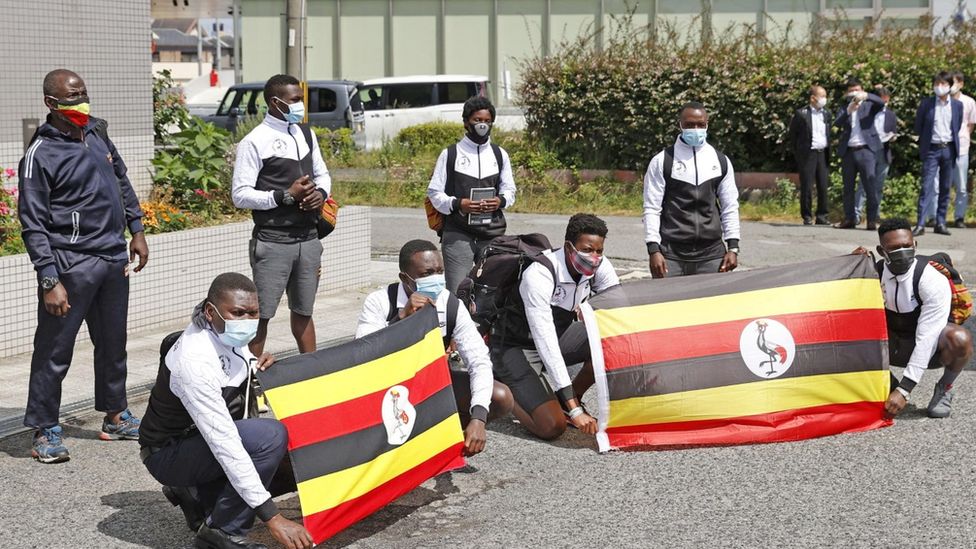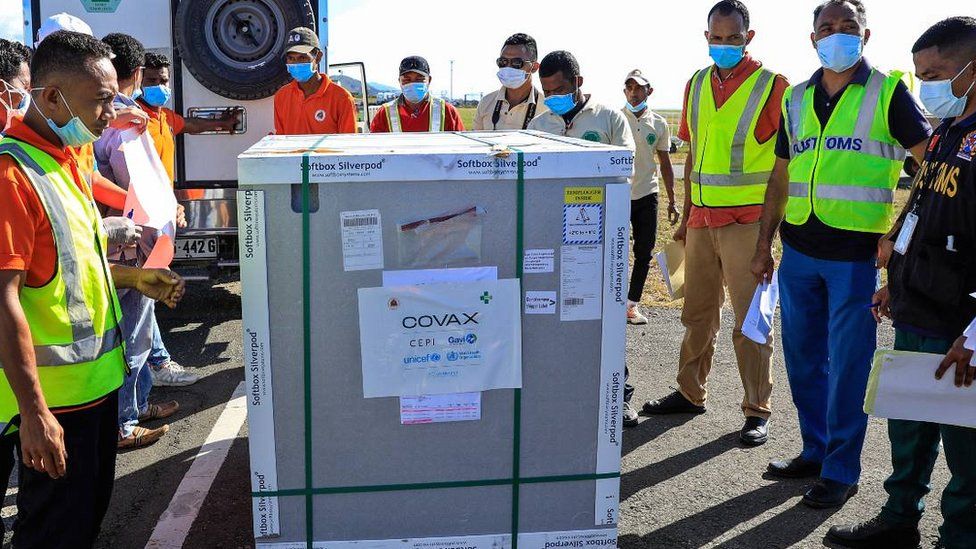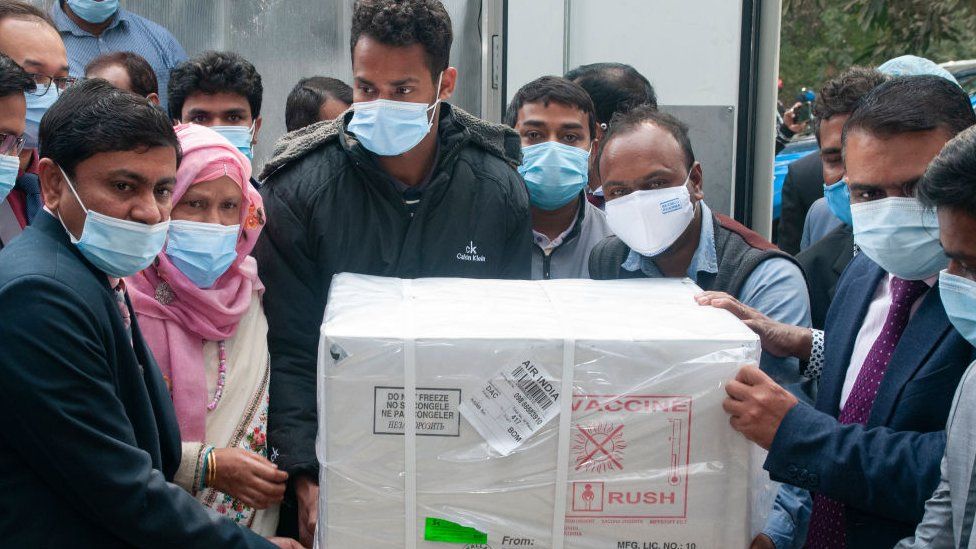Tokyo 2020: Does Japan have Covid under control?
SharecloseShare pageCopy linkAbout sharingimage copyrightReutersWith the Tokyo Olympics and Paralympics fast approaching, there have been warnings from medical experts about the possible spread of Covid at the Games.The Olympics begin on 23 July, and organisers say up to 10,000 domestic fans will be permitted at venues. The Paralympics starts on 24 August, with its spectator numbers to be confirmed by 16 July, What is the situation with infections in Japan? About 1,400 new infections are being reported every day, but case numbers have been falling from a peak of more than 6,000 in mid-May.Experts have said the daily infection rate in the host city of Tokyo needs to fall below 100 in order to hold the Games safely. On 21 June, the city’s health authorities reported 236 new infections, with an average over the last seven days of just under 400 new cases a day.The steep fall from mid-May has now levelled off, broadly matching the national picture. At the peak of infections in May, hospitals in many areas were overwhelmed, with large parts of Japan under a state of emergency, giving the authorities greater powers to enforce restrictions. There will be specific measures put in place in Tokyo, such as limits on bars, when the Games get under way. How many people have been vaccinated?A mass vaccination campaign was launched in the two biggest cities, Tokyo and Osaka, as infections rose. But to date, only about 16% of the country has been vaccinated. That’s about the same proportion as those who’ve had one dose in India. More than half the population of the UK, US and Germany have had one dose.Japan only started vaccinating people in February, later than most other developed nations.The Pfizer jab was, for some months, the only approved vaccine in Japan. This process took longer because Japan insisted on doing its own trials alongside the tests done internationally. image copyrightGetty ImagesOfficials say this was done to build confidence in the vaccine, according to the Asahi Shimbun newspaper. Historical concerns surrounding side effects have contributed to hesitancy towards inoculations in the past. An Imperial College London study of 15 countries found that Japan had the lowest levels of trust towards the coronavirus vaccines. The rollout has also been hampered by supply shortages and logistical hurdles. Japanese law has only permitted doctors and nurses to carry out vaccinations, but the rules have now been relaxed to allow dentists, paramedics and clinical technologists to bolster the vaccine drive. Since the start of the month, the number of daily jabs has almost doubled – a sign the new approach seems to be working.Japan has reportedly secured more than 300 million doses of Pfizer, AstraZeneca and Moderna shots (it approved the production and use of the latter two in May), which would be enough to vaccinate the entire population. What other measures has Japan taken?Japan – unlike many other countries – did not enforce strict lockdowns or completely close off its borders as soon as the pandemic hit last year.image copyrightGetty ImagesIn April 2020, the government introduced a state of emergency, although the stay-at-home guidelines were voluntary. Non-essential businesses were asked to close, but did not face penalties for not complying.Restrictions on entry were introduced from some countries, and others were added later.Although it has a large elderly population and densely-populated urban centres, Japan proved relatively successful in controlling the virus initially, and avoiding high death rates.There were a number of theories put forward as to why this might have been, including:high public compliance with safety measures such as mask wearingclose physical contact like hugging and kissing is generally avoidedlower rates of chronic disease like heart conditions, obesity and diabetesimage copyrightGetty ImagesHowever, there were outbreaks of the virus throughout 2020 and nationwide, case numbers rose sharply in the latter part of the year and into a peak this January. At the time, the government faced criticism over a campaign encouraging domestic travel in order to boost the economy.A state of emergency was declared in Tokyo and nine other regions when case numbers started to rise in April. Japan now has border restrictions in place – nationals of nearly 160 countries are currently denied entry (unless exceptional circumstances apply).Read more from Reality Check
Read more →


